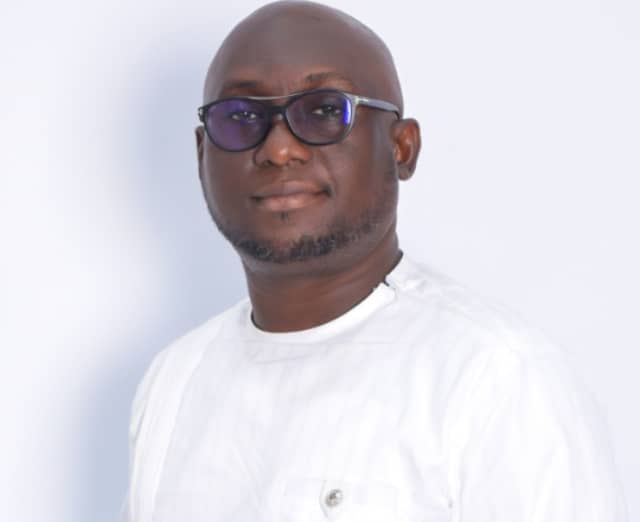
Dear Mr. President,
I wish to state that “Time Answers Everything,” and that God makes things beautiful in His time.
First and foremost, I would like to congratulate you on your election and swearing-in as the First Gentleman of our motherland, Ghana, for the next four (4) years, ending on the 7th of January 2029.
As a proud Ghanaian and someone who believes in positivity and hard work, I strongly believe in the contribution of individuals towards achieving the desired state that we (Ghanaians) envision for our nation.
Below are twenty (20) key highlights/pointers that represent my personal convictions on how we can build our homeland Ghana to attain self-sufficiency in the medium to long term.
POINTERS:
- Redevelopment/realignment of the Tema Free Zone enclave. This should include a review of the Free Zones Act 1995, Act 504.
- Initiating the development of the Western Free Zones enclave and the Kumasi Industrial Park, which will undoubtedly serve as a crucial economic lifeline by creating jobs in the medium to long term and becoming a hallmark of economic excellence when implemented.
- Enhancing cohesion and productive collaboration among the Ghana Investment Promotion Centre (GIPC), Ghana Free Zones Authority (GFZA), and the Ministry of Trade and Industry (MOTI).
- Establishing and addressing sectorial/industrial deficits, starting with “low-hanging fruits,” and developing actionable strategies to reduce these deficits to achieve self-sufficiency and self-sustenance in the long term.
- Revisiting the initiative to limit the importation of certain items/commodities, industry-by-industry, as started by the former government under the Ministry of Trade and Industry. This initiative did not materialize due to the lack of comprehensive stakeholder engagement in developing a blueprint. (A comprehensive stakeholder engagement strategy should be developed, with import substitution strategies and Key Performance Indicators [KPIs]).
- A reassessment of the Boankra Inland Port Project through a comprehensive value chain analysis. When completed, this project will be pivotal in expanding Ghana’s economic reach to other West African countries north of Ghana.
- Developing and nurturing deliberate policies aimed at building the capacities of local construction firms. (One notable achievement is the awarding of the Motorway Rehabilitation Project to MARIPOMA ENTERPRISE LIMITED, a local firm, in 2024.)
- Formulating dynamic policies that align with the African Continental Free Trade Area (AfCFTA) blueprint and leveraging Ghana’s advantage of hosting the AfCFTA Headquarters. A dedicated unit within the Ministry of Trade & Industry should be established to oversee the transition to achieving this objective.
- Conducting a comprehensive assessment of Ghana’s foreign policies, monitoring and evaluating the mandates of High Commissioners and Ambassadors based on results-oriented criteria. Their performance should be linked to GDP growth and efforts to enhance Foreign Direct Investments (FDIs).
- A deliberate and phased reassessment of the railway sector development agenda to instill confidence and hope. Enhancements in inner and intra-city transport should be aligned with the Boankra Inland Port project.
- Initiating a review of the establishment and relevance of certain Ministries, Agencies, and State-Owned Enterprises (SOEs) to ensure realignment for better productivity and efficiency in the medium to long term.
- Retooling the Ghana Irrigation Development Authority (GIDA) to conduct a comprehensive audit of all irrigation facilities and schemes, assessing human resources and infrastructure to redefine GIDA’s role within the Ministry of Food and Agriculture (MOFA).
- Conducting a decisive and comprehensive assessment of the One-District-One-Factory (1D1F) program within the first two years to maximize its full potential, with robust Key Performance Indicators (KPIs).
- Engaging specialists, experts, and Civil Society Organizations (CSOs) in the energy sector to develop sustainable policies aimed at achieving self-sufficiency with minimal or no political interference. (It is worrying to see inefficiencies in our energy sector despite Ghana being an oil-producing country since 2010—15 years and counting.)
- Redefining and strengthening the mandate of the National Sports Authority (NSA) to take full control of the sports sector. A five- to ten-year development plan should be developed, fully funded, and result-oriented.
- Leading the charge, as President, to reignite the patriotic and nationalistic attitude of Ghanaians through a national orientation and mindset change campaign.
- Initiating a national re-orientation strategy from the basic school level to instill a mindset change among Ghanaians. This should include a structured five- to fifteen-year development plan to build the capacities of teachers across all educational levels.
- Realigning the decentralization agenda to drive dynamic and rapid district-level development, with the 1D1F initiative in mind to create jobs.
- Urgently reviewing the mandate of the National Buffer Stock Company (NAFCO), established in 2010, under the National Buffer Stock Policy to enhance efficiency and effectiveness.
- Deliberately widening the tax net to increase the number of contributors beyond the current 2.5 million and improve the tax-to-GDP ratio from the existing 12.4%. (For 32 years in Ghana’s Fourth Republic, successive governments have promised to achieve this, yet progress remains stagnant. It is troubling to note that over 80% of our revenue goes into emoluments and debt interest payments.)
Conclusion:
I often shiver and feel disheartened when I observe the economic and governance advancements of Malaysia, Singapore, and South Korea, and compare them to Ghana. It is concerning that less than 40% of the products sold in our shopping malls are produced locally.
I strongly believe that the twenty (20) pointers highlighted above, if considered, will help push Ghana towards our desired economic and developmental goals.
The legacy of Dr. Kwame Nkrumah should serve as an inspirational factor in achieving this goal, as his vision and accomplishments prove that, while difficult and daunting, it is indeed possible.
A country becomes self-sufficient when sustainable wages and salaries are supported by an economy built on a solid industrial foundation.
Long live Ghana! Long live Mother Africa!
Yours sincerely,
SIGNED:
Alfred Mensah-Onumah
Citizen of Ghana
DISCLAIMER: The Views, Comments, Opinions, Contributions and Statements made by Readers and Contributors on this platform do not necessarily represent the views or policy of Multimedia Group Limited.

